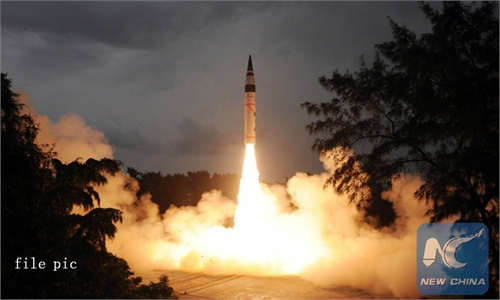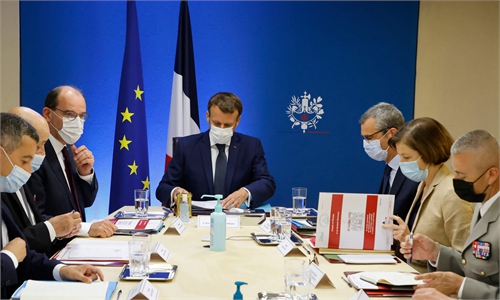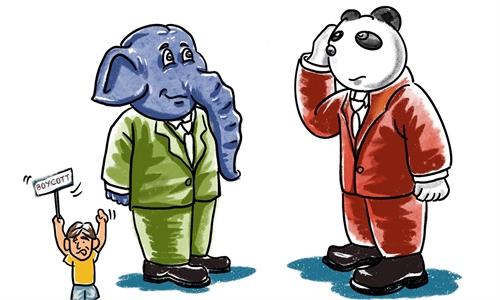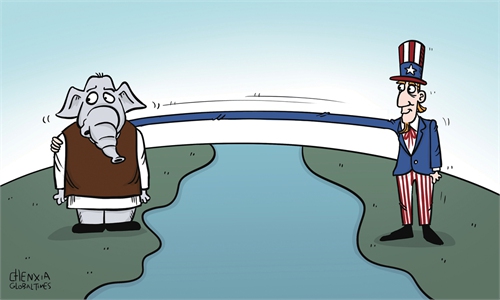India scapegoats China over NSG membership for own reluctance to make emissions reduction promise
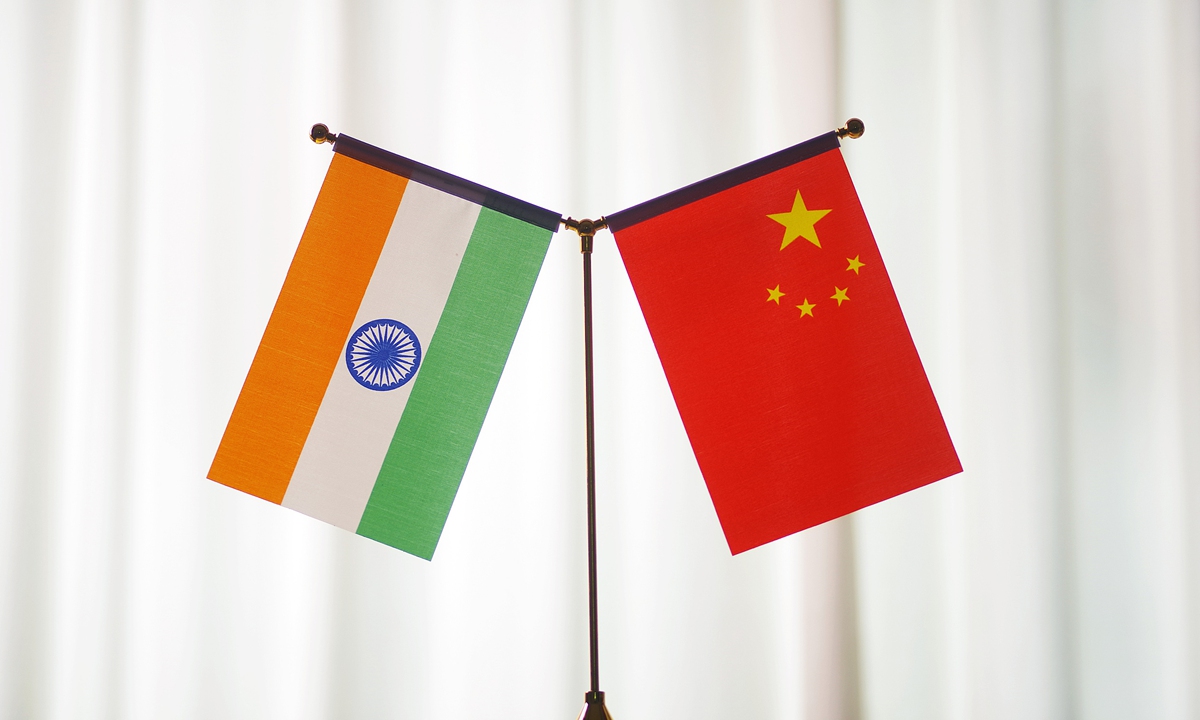
China India Photo:VCG
India is playing a petty trick by using its absence in the Nuclear Suppliers Group (NSG) as an excuse for its own reluctance to make emissions reduction promises and to scapegoat China for its difficulties to obtain membership, Chinese experts said on Monday. They urged India to put aside political elements and return to the consensus on cooperation and development reached by Chinese and Indian leaders.As Indian Prime Minister Narendra Modi arrived in Glasgow for the COP26 climate summit, Indian media reported on Monday that the country had made a renewed push for its membership to the coveted NSG.
The climate and development goals are something that needs to be determined based on the type of technologies that would be available for that climate transition. India also will need NSG membership to ensure adequate availability of raw materials for nuclear supply and several other associated concerns around the cost of power, NDTV reported, citing India's commerce and industry minister Piyush Goyal, who is also personal representative of the head of Indian government for preparing for the grouping's G20 summit.
Following what Goyal said, Indian media hyped China's role in "blocking" the country from entering the NSG group. For example, the Monday NDTV report said that "even though India has the backing of the majority of the group's members, China has been blocking its entry into the bloc."
India first applied for NSG membership in May 2016. Goyal's speeches are nothing new compared with the excuses they had been using since then to acquire NSG membership, Lin Minwang, a professor at the Institute of International Studies of Fudan University, told the Global Times on Monday.
India would not make any emissions reduction promise even if they had entered the NSG as they are currently accelerating domestic industrialization, which would lead to increasingly high emissions, Lin pointed out.
Reuters reported last week that India, the third-largest emitter of greenhouse gases after China and the US, refused to announce a net-zero carbon emissions target ahead of COP26 when countries are expected to push action to deal with the rise in the global temperature.
Experts noted that India's reluctance to set a target shows its difficulties in balancing economic development and reducing emissions.
Some Indian officials and politicians are just playing a petty trick to use India's absence in the NSG as an excuse for the country's reluctance to make emissions reduction promises while scapegoating China for India's absence. So they're saying that China is the reason why they could not make any promise on the climate change issue, Lin said.
The NSG, a 48-member group which regulates global nuclear commerce, was founded in response to India's nuclear test in May 1974. Being a signatory to the Treaty on the Non-Proliferation of Nuclear Weapons (NPT) is a prerequisite for NSG members.
China has insisted that entry into the NSG would depend on safeguarding the global nonproliferation regime, and India should not wrongly blame China for "blocking" it from entering.
There is no precedent for a non-NPT signatory to become an NSG member. Many inside the body that monitors the global flow of nuclear materials insist on prudence in handing a membership card to any non-treaty party, according to experts.
Exempting India would be unfair to other countries, and other non-NPT nations would also want to join the NSG, experts warned.
By mixing two different issues together, India is just making an excuse for its selfish and irresponsible behavior, said Tian Guangqiang, an assistant research fellow at the National Institute of International Strategy of the Chinese Academy of Social Sciences.
India is aware of China's stance on both issues. By mixing the two, India not only scapegoats China for its reluctance to make an immediate promise on emissions reduction but also pushes China on India's NSG membership, Tian said.
But if China relaxes its stance and admits India into the NSG without signing the NPT, India would be free to seek its nuclear strategy targets without strict constraints, Tian said. "Either way, India wins."
While revealing India's petty trick, Chinese experts called on the country to put aside political considerations and cooperate with China on various international affairs, citing large cooperation and development space in trade and energy.
Some political elements, especially in India, have affected the China-India ties in recent years. But as two major developing economies that account for two-fifths of the world's population, the two countries should put aside political differences, work together to safeguard developing countries' interests, and focus on the consensus on cooperation and development reached previously, Qian Feng, director of the research department at the National Strategy Institute at Tsinghua University, told the Global Times on Monday.

